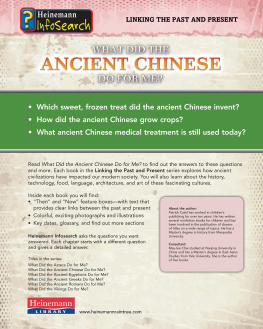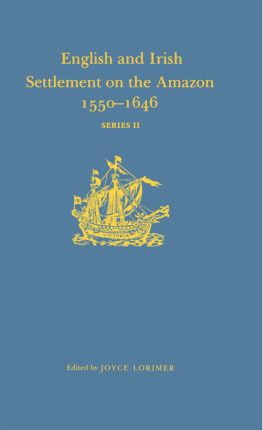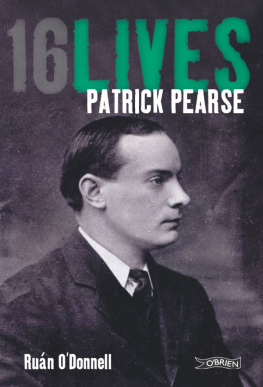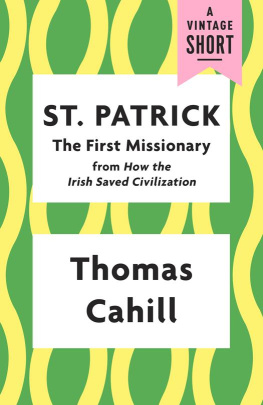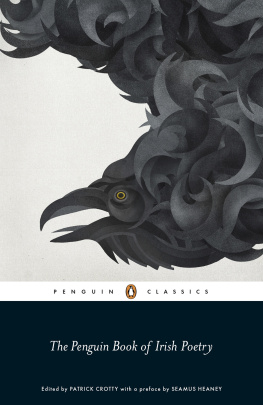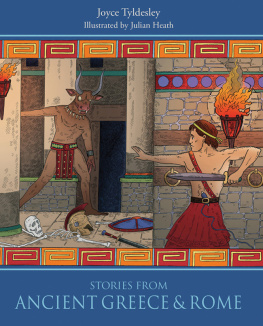P. W. (Patrick Weston) Joyce - The Story of Ancient Irish Civilization
Here you can read online P. W. (Patrick Weston) Joyce - The Story of Ancient Irish Civilization full text of the book (entire story) in english for free. Download pdf and epub, get meaning, cover and reviews about this ebook. year: 2015, publisher: CreateSpace Independent Publishing Platform, genre: Religion. Description of the work, (preface) as well as reviews are available. Best literature library LitArk.com created for fans of good reading and offers a wide selection of genres:
Romance novel
Science fiction
Adventure
Detective
Science
History
Home and family
Prose
Art
Politics
Computer
Non-fiction
Religion
Business
Children
Humor
Choose a favorite category and find really read worthwhile books. Enjoy immersion in the world of imagination, feel the emotions of the characters or learn something new for yourself, make an fascinating discovery.

- Book:The Story of Ancient Irish Civilization
- Author:
- Publisher:CreateSpace Independent Publishing Platform
- Genre:
- Year:2015
- Rating:4 / 5
- Favourites:Add to favourites
- Your mark:
- 80
- 1
- 2
- 3
- 4
- 5
The Story of Ancient Irish Civilization: summary, description and annotation
We offer to read an annotation, description, summary or preface (depends on what the author of the book "The Story of Ancient Irish Civilization" wrote himself). If you haven't found the necessary information about the book — write in the comments, we will try to find it.
The Story of Ancient Irish Civilization — read online for free the complete book (whole text) full work
Below is the text of the book, divided by pages. System saving the place of the last page read, allows you to conveniently read the book "The Story of Ancient Irish Civilization" online for free, without having to search again every time where you left off. Put a bookmark, and you can go to the page where you finished reading at any time.
Font size:
Interval:
Bookmark:

Constructed to illustrate Dr. Joyces Social Histories of Ancient Ireland.
From the two Plans given by Petrie in his Essay on Tara.
OF
ANCIENT IRISH CIVILISATION
P. W. JOYCE, LL.D., M.R.I.A.
One of the Commissioners for the Publication of the Ancient Laws of Ireland
President of the Royal Society of Antiquaries, Ireland
DUBLIN: M. H. GILL & SON, LTD.
1907
Of wealth and goodnesse, far above the rest
Of all that beare the British Islands name.
February, 1907.
| CHAPTER. | PAGE |
| How the Ancient Irish People were Governed by their Kings and Chiefs | |
| How the Warlike Old Irish Conquered Foreign Lands | |
| How Kings, Chiefs, and People Were Subject to the Brehon Laws | |
| How the Ancient Irish Lived As Pagans | |
| How the Irish People Lived As Christians | |
| How Ireland became the Most Learned Country in Europe | |
| How the Irish Missionaries and Scholars Spread Religion and Learning in Foreign Countries | |
| How the Ancient Irish Wrote down all their Literature, and how Books Increased and Multiplied | |
| How the Irish Scholars Compiled their Annals | |
| How the Irish derived Amusement and Instruction from Historical and Romantic Tales | |
| How the Ancient Irish Excelled in Music | |
| How the Ancient Irish Excelled in Art | |
| How the Ancient Irish Physicians were Skilled in Medicine | |
| How the Old Irish People Built and Arranged their Houses | |
| How they ate, Drank, Feasted, and Entertained | |
| How the People Dressed | |
| How they Fenced in and Tilled their Land | |
| How Irish Handicraftsmen Excelled in their Work | |
| How they Prepared and Made up Clothing Materials | |
| How the Irish Travelled on Land and Water | |
| How the People Held Great Conventions and Fairs; and how they Amused Themselves | |
| How the Character of the Old Irish People showed itself in various Circumstances and on various Occasions | |
| Index |
Font size:
Interval:
Bookmark:
Similar books «The Story of Ancient Irish Civilization»
Look at similar books to The Story of Ancient Irish Civilization. We have selected literature similar in name and meaning in the hope of providing readers with more options to find new, interesting, not yet read works.
Discussion, reviews of the book The Story of Ancient Irish Civilization and just readers' own opinions. Leave your comments, write what you think about the work, its meaning or the main characters. Specify what exactly you liked and what you didn't like, and why you think so.

